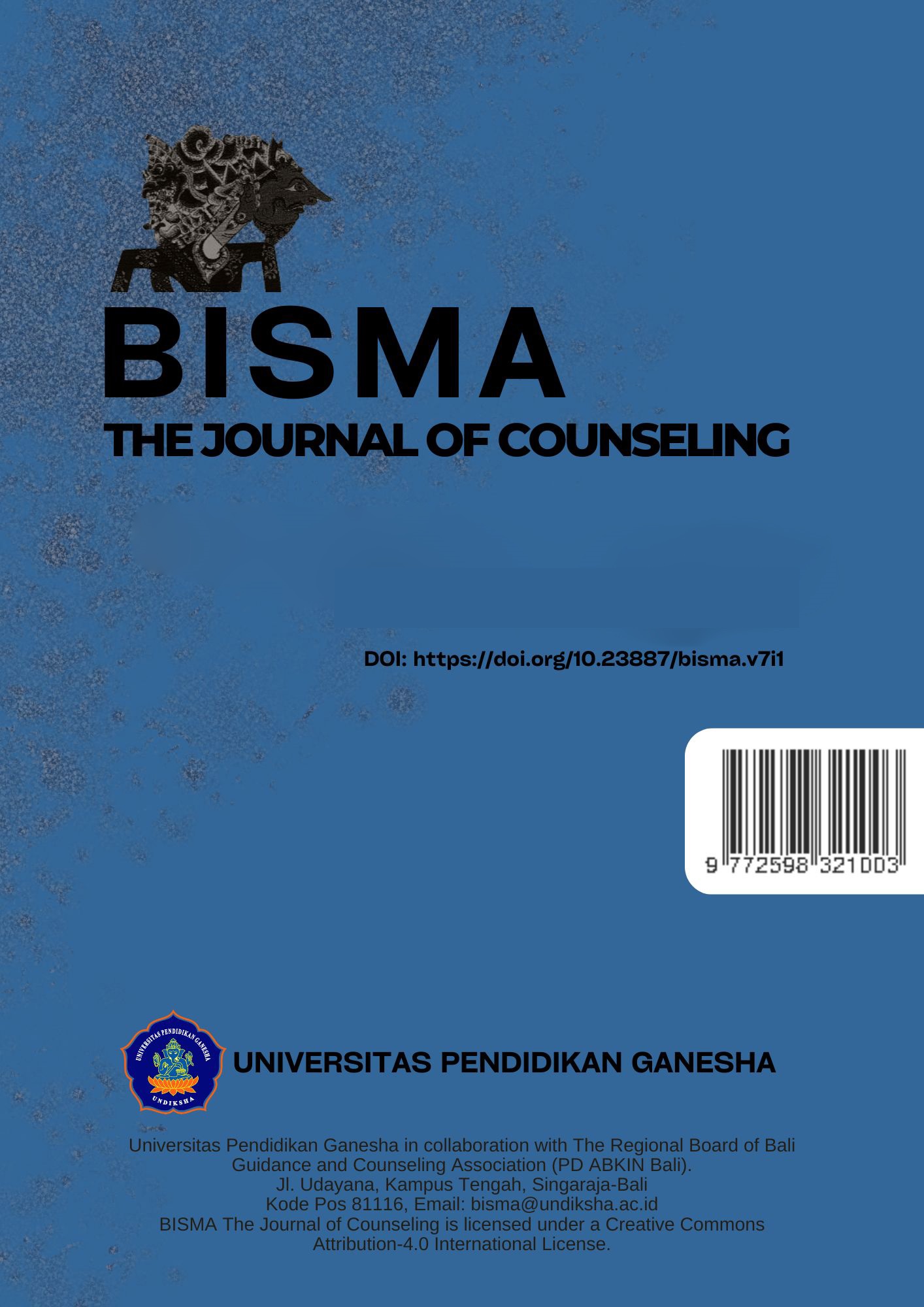School Counselors as Key Players in Enhancing Social Interaction Skills of Students with Down Syndrome
DOI:
https://doi.org/10.23887/bisma.v8i3.89636Keywords:
School Counselor, Down Syndrome, Social InteractionAbstract
This research focuses on the challenges faced by students with Down syndrome in developing effective social interaction skills, which are often influenced by environmental limitations and the suboptimal role of support systems in schools. The study aims to analyze the role of school counselors as consultants, transmitters, and initiators in supporting the development of social interactions in students with Down syndrome. A descriptive research method with a qualitative approach was employed. The research subjects included school counselors as primary subjects, and class teachers and parents of students with Down syndrome as secondary subjects. Data were collected through observations, in-depth interviews, and documentation studies, and then analyzed using triangulation techniques through coding to ensure data validity. The findings indicate that the role of school counselors as consultants helps to provide strategic guidance to teachers and parents, the role as a transmitter function to convey relevant information and understanding about the students' needs, while the role as an initiator facilitates interactive activities that encourage the students' social skills. This study concludes that the role of school counselors is crucial in creating an inclusive and supportive environment for the development of social interactions in students with Down syndrome, ultimately contributing to the improvement of their quality of life.
Published
Issue
Section
License
Copyright (c) 2024 Rafael Lisinus Ginting, Erwita Ika Violina, Mirza Irawan, Asiah, Aklima, Elizon Nainggolan

This work is licensed under a Creative Commons Attribution 4.0 International License.








